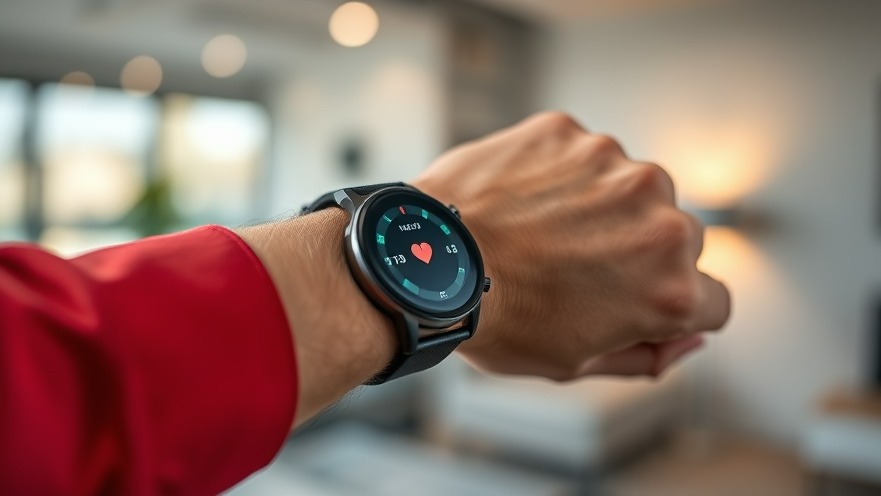
Revolutionizing Heart Attack Detection: The Future of Wearable Technology
In the relentless race against time during a heart attack, groundbreaking innovations are emerging to enhance patient outcomes. Researchers at the University of Mississippi have developed a wearable heart attack detection technology that promises to identify cardiac events faster and more accurately than ever before. This breakthrough could be a game changer for early detection and timely interventions.
The Importance of Speed in Heart Attack Detection
Heart disease remains the leading cause of death in the United States, with someone dying from a heart attack every 40 seconds. The paramount importance of speed during such medical emergencies cannot be overstated; a timely diagnosis and response can save lives. The research team under Professor Kasem Khalil emphasizes that their new technology could reduce the traditional detection time by as much as 50%, enhancing the chances of survival significantly.
Introducing a Smart Solution: Lightweight and Economical
The heart attack detection chip developed by Khalil's team incorporates advanced artificial intelligence algorithms and sophisticated mathematics. This combination allows for the analysis of electrocardiograms (ECGs)—the graphical representation of the heart's electrical activity—in real-time. With an impressive accuracy rate of 92.4%, this device promises to surpass many current heart monitoring technologies.
Empowering Practical Use for Patients
Designed with practicality in mind, the technology is not only efficient but also lightweight and cost-effective. Doctoral student Tamador Mohaidat highlighted that this chip can be embedded into various wearable devices, making it accessible for continuous monitoring. In a world where wearable health technology is gaining traction, this innovation represents a significant step forward in personal health management.
Collaborative Efforts and Innovation in Healthcare Technology
The project exemplifies the power of collaboration in advancing medical technology. Mohaidat worked on crafting an artificial neural network to enhance detection capabilities, while Md. Rahat Kader Khan contributed by developing the device's operational software. Their combined expertise showcases the multidisciplinary approach needed to tackle modern health challenges effectively.
The Anticipated Impact on Patient Care
As concierge health practitioners, staying attuned to technological advancements like this makes a significant difference in patient care. The integration of such wearables into your practice could streamline monitoring for patients with existing heart conditions or those at-risk, enabling proactive intervention strategies.
Future Implications for Heart Disease Management
Looking forward, the potential for widespread adoption of this technology could revolutionize how we approach heart health. In a landscape where preventive healthcare is becoming more prevalent, wearable solutions represent a significant evolution in monitoring and managing cardiovascular conditions. Patients armed with data from wearables could engage more meaningfully with their health, prompting early interventions and effective care plans.
Common Misconceptions of Wearable Health Devices
While wearables are often viewed as novelty gadgets, it is crucial to recognize their profound implications. Many might underestimate how these devices can hold critical health data, transforming the patient-provider dynamic into a collaborative health management approach.
Practical Steps for Implementing This Technology in Your Practice
As the technology continues to develop, practitioners should consider the following steps in integrating wearable heart attack detection into their practices:
Education: Stay informed about the advancements in wearable health technologies and their implications for patient care.
Patient Engagement: Encourage patients to utilize wearables, explaining how they can improve their health outcomes.
Partnerships: Collaborate with technology providers to ensure seamless integration of wearables into your health management systems.
This new detection technology highlights the blend of engineering and healthcare advances, and how they can work together to save lives. For practitioners, embracing these innovations not only benefits patient outcomes but also positions your practice at the forefront of modern medical care.
Call to Action: Integrate innovative heart health monitoring into your practice today. Explore how wearable technologies can enhance patient care and improve health outcomes in your community.
 Add Row
Add Row  Add
Add 




Write A Comment